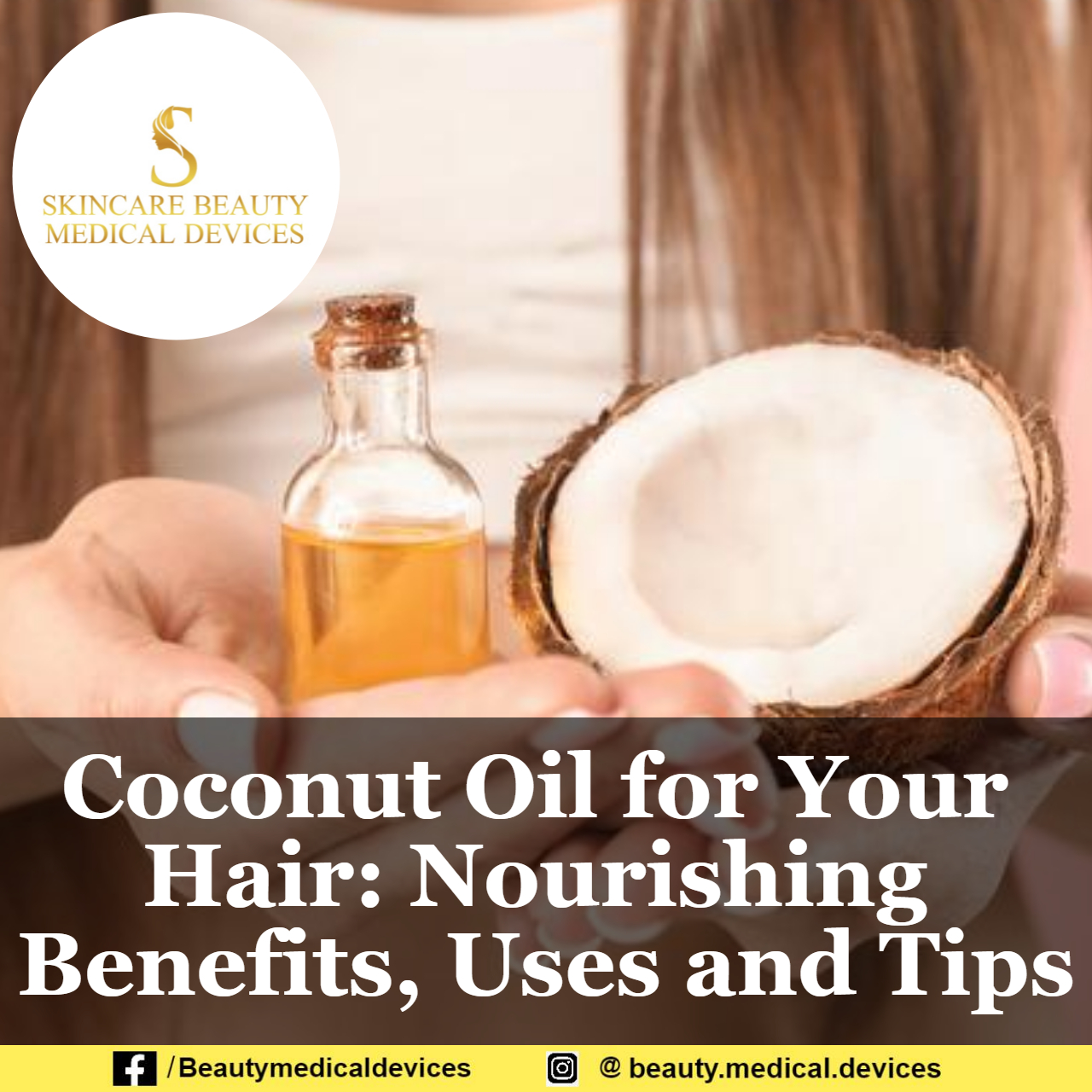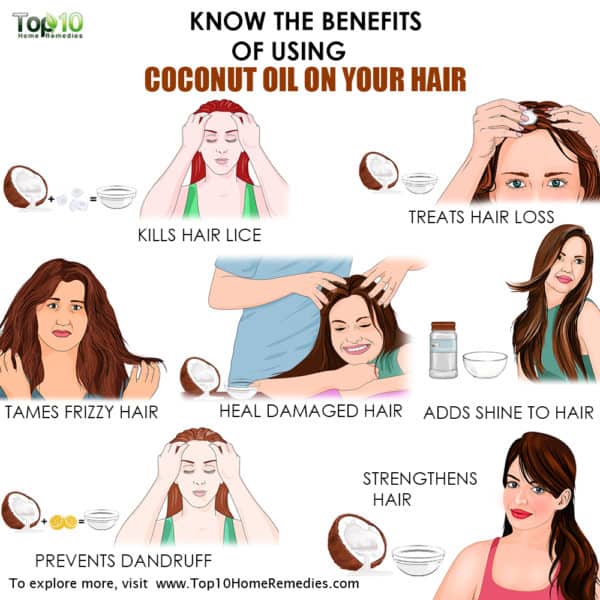In today’s beauty-conscious world, countless products promise hair-transforming results. From deep conditioners to elaborate hair masks, we’re constantly bombarded with options. One ingredient consistently popping up in these promises is coconut oil. Its reputation as a versatile natural remedy extends to hair care, with claims ranging from strengthening strands to promoting shine. But is coconut oil truly a miracle worker for your hair, or just another hype-filled trend? This comprehensive exploration dives deep into the science and the practical application of coconut oil for hair health, examining its benefits, potential drawbacks, and ultimately helping you make an informed decision about its place in your hair care routine. We’ll uncover the nuances of its chemical composition, compare it to other oils, and explore real-world experiences to give you a balanced perspective.
Understanding Coconut Oil’s Composition and Properties
Chemical Structure and Fatty Acid Profile
Coconut oil, derived from the flesh of coconuts, is primarily composed of saturated fatty acids, predominantly lauric acid. This unique composition gives it a solid consistency at room temperature. Its saturated fat content is a key factor in its potential benefits and drawbacks for hair health. These fatty acids play a crucial role in moisturizing the hair and scalp.

Impact on Hair Structure and Hydration
The moisturizing properties of coconut oil stem from its ability to penetrate the hair shaft and replenish lost moisture. Lauric acid, a significant component, is believed to create a protective barrier, shielding hair from environmental stressors and moisture loss. This hydration can lead to improved manageability and a healthier overall appearance.
Coconut Oil’s Potential Benefits for Hair
Moisture Retention and Hydration
One of the most frequently cited benefits of coconut oil for hair is its ability to deeply hydrate the hair shaft. The saturated fatty acids, particularly lauric acid, are known for their moisturizing qualities. This can lead to improved manageability, reduced frizz, and a healthier, shinier appearance.
Scalp Health and Dandruff Reduction
The antimicrobial properties of coconut oil are another area of interest. Some studies suggest that it can help regulate the scalp’s natural pH balance and potentially reduce the growth of fungi and bacteria that can contribute to dandruff. This can lead to a healthier scalp environment and less irritation.
Strength and Repair
Coconut oil’s ability to penetrate hair shafts could potentially lead to improved hair strength and repair, though further research is needed. The claim that it strengthens hair against breakage remains largely anecdotal.
Potential Drawbacks and Considerations
Heavy and Greasy Feel
A frequent complaint about using coconut oil on hair is its heavy and greasy feel. This can be particularly problematic for those with oily hair types, as it can exacerbate existing issues. Applying a small amount, or using it as a treatment mask, can minimize this issue.
Compatibility with Different Hair Types
Not everyone experiences the same results with coconut oil. Some individuals find that it works well for their hair type, while others find it to be ineffective or even problematic. For example, those with fine hair might find that it weighs it down, while those with thick, dry hair may find it moisturizing.
Possible Allergic Reactions
Like any product, coconut oil can trigger allergic reactions in sensitive individuals. A small patch test is always advisable before applying it to the entire head. If any irritation or redness occurs, discontinue use immediately.
Comparative Analysis with Other Oils
Comparison with Olive Oil and Argan Oil
| Oil | Fatty Acid Profile | Benefits | Drawbacks |
|---|---|---|---|
| Coconut Oil | High in saturated fats | Deep hydration, possible scalp benefits | Can be heavy, not suitable for all hair types |
| Olive Oil | Balanced mix of saturated and unsaturated fats | Moisture, shine | Can be greasy |
| Argan Oil | Rich in vitamin E and fatty acids | Strength, moisture, shine | Can be expensive |
Comparing coconut oil to other oils reveals that each has unique properties that may suit different hair types. Consider your specific hair needs when choosing an oil.
Real-World Experiences and Expert Insights
Anecdotal Evidence and Testimonials
Many individuals report positive experiences with coconut oil for their hair, highlighting its ability to improve moisture and reduce frizz. However, the lack of controlled studies limits the strength of this evidence.
Expert Opinions and Recommendations
Hair stylists and dermatologists often offer varying opinions on coconut oil’s effectiveness. Some suggest using it as a deep conditioning treatment, while others advise caution, particularly for oily scalps.
Practical Applications and Usage Tips
Applying Coconut Oil to Hair
For best results, apply a small amount of coconut oil to damp hair, focusing on the ends. Massage gently into the scalp to stimulate circulation. You can also use it as a deep conditioning mask overnight.
Frequency and Duration of Application
The frequency of application depends on your hair type and desired results. For some, a weekly treatment is sufficient, while others may find daily use beneficial.
Summary
Coconut oil offers potential benefits for hair health, particularly in terms of moisture retention and scalp health. Its saturated fatty acid composition can deeply hydrate hair, and some users report improved manageability and reduced frizz. However, potential drawbacks include a heavy, greasy feel and the possibility of allergic reactions. The effectiveness of coconut oil for hair can vary significantly depending on individual hair type and needs.
Consider your hair type and concerns when incorporating coconut oil into your hair care routine. A small amount, used as a targeted treatment, may be more beneficial than daily application. Combining coconut oil with other moisturizing products may also enhance its benefits.
Frequently Asked Questions (FAQs)
Does coconut oil make hair grow faster?
While coconut oil may contribute to healthy hair growth by promoting hydration and scalp health, there’s no definitive scientific evidence that it accelerates hair growth rate. Focus on a balanced diet and healthy lifestyle for optimal hair growth.
Can coconut oil be used as a hair mask?
Yes, coconut oil can be used as a hair mask. Apply a generous amount to damp hair, cover with a shower cap, and let it sit for at least 30 minutes, or even overnight. This allows the oil to deeply penetrate and moisturize the hair shaft.
Is coconut oil suitable for all hair types?
No, coconut oil’s effectiveness varies depending on hair type. Those with oily hair might find it exacerbates existing issues, while those with dry hair may benefit from its moisturizing properties. Experiment with small amounts and observe how your hair responds.
How long should I leave coconut oil in my hair?
The ideal time for leaving coconut oil in your hair depends on the desired result and your hair type. For a deep conditioning treatment, leaving it on overnight is beneficial. For a quick treatment, 30 minutes to an hour is sufficient.
What are some potential side effects of using coconut oil on hair?
While generally safe, coconut oil can cause allergic reactions in sensitive individuals. Start with a small amount and monitor your scalp for any irritation or redness. If any adverse reaction occurs, discontinue use immediately.



